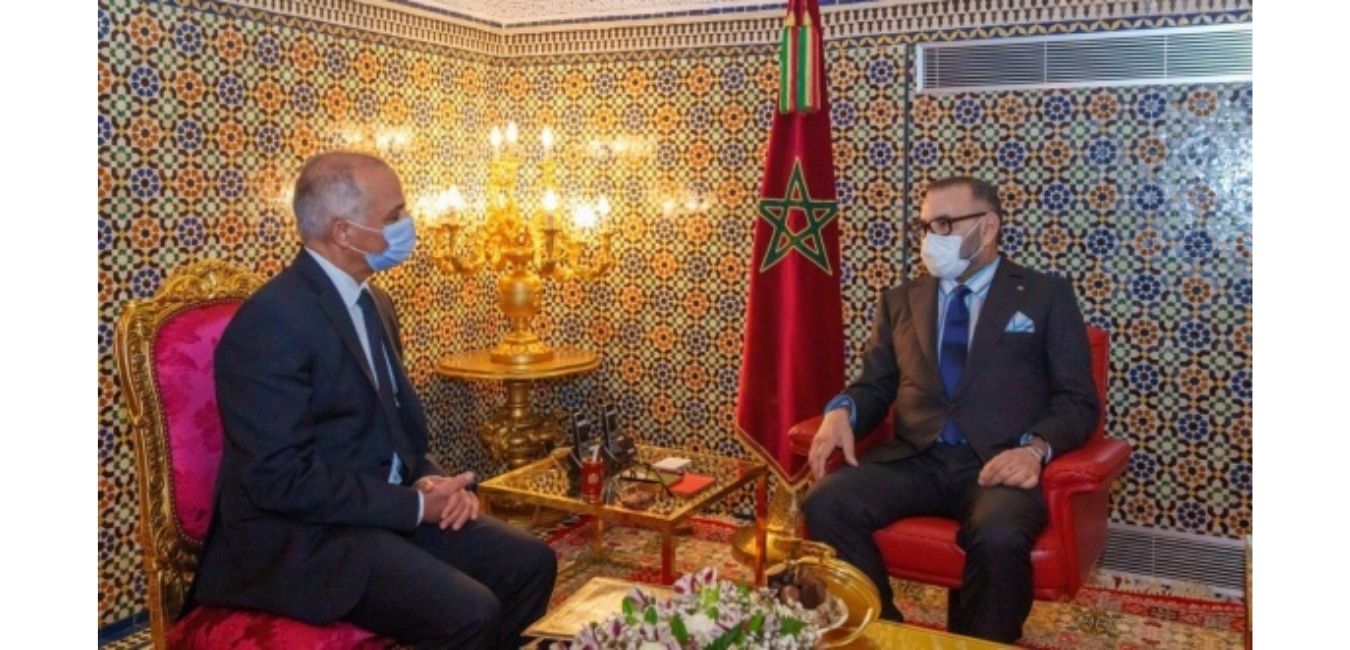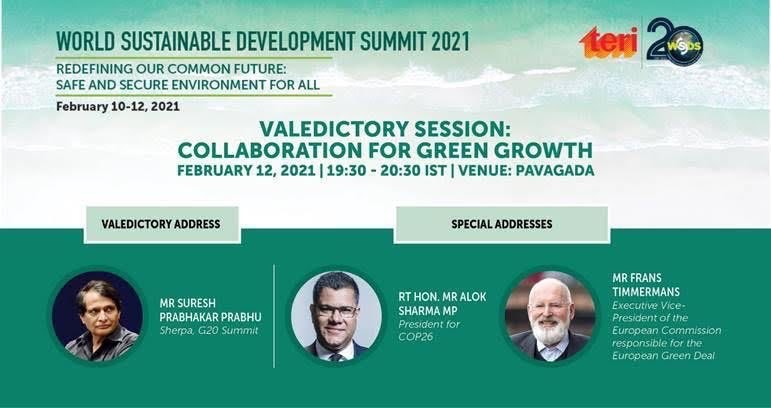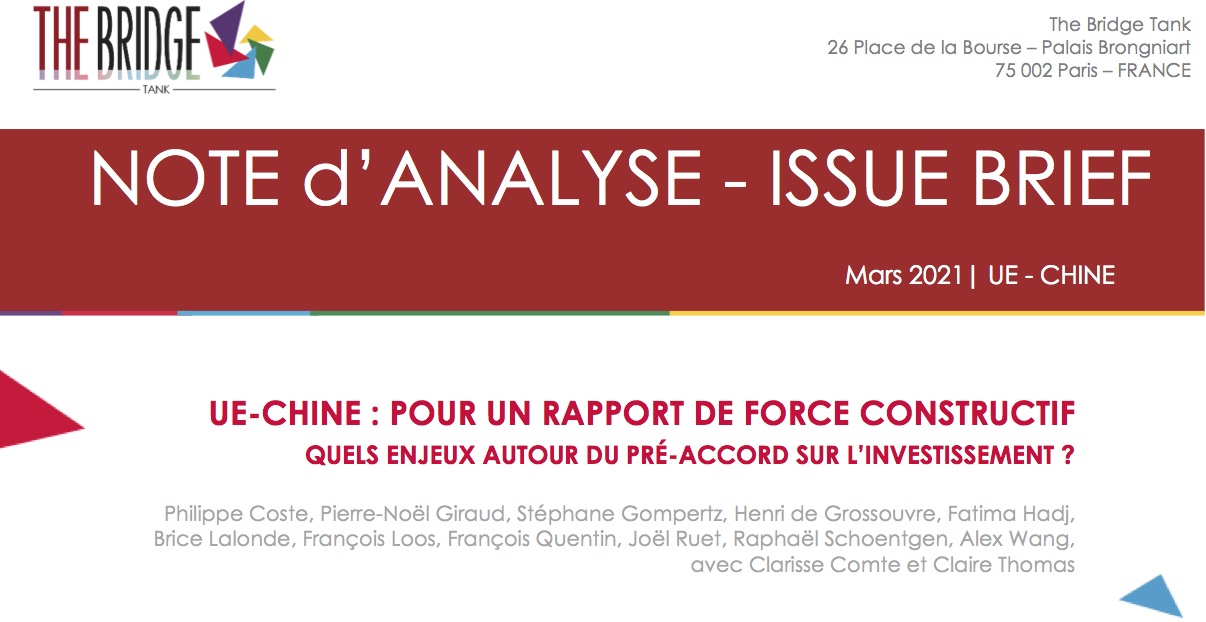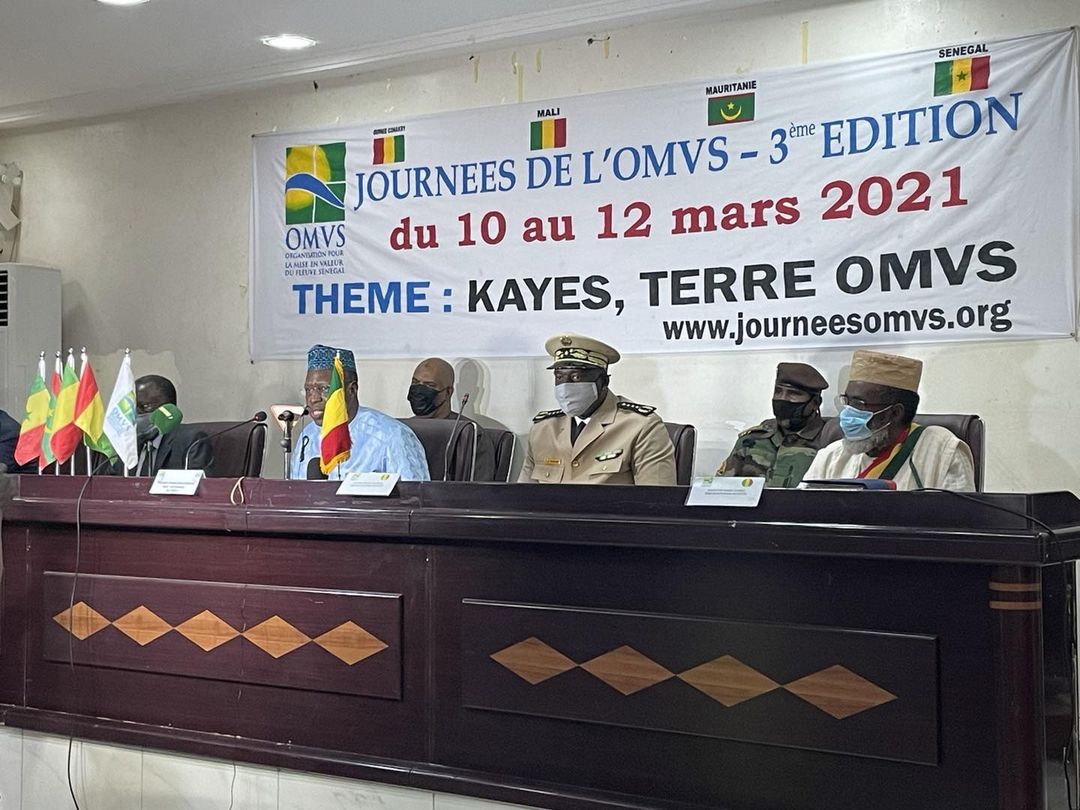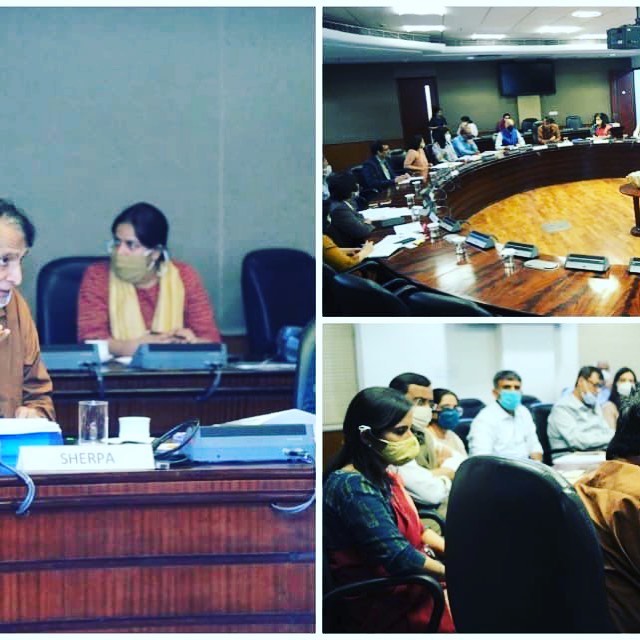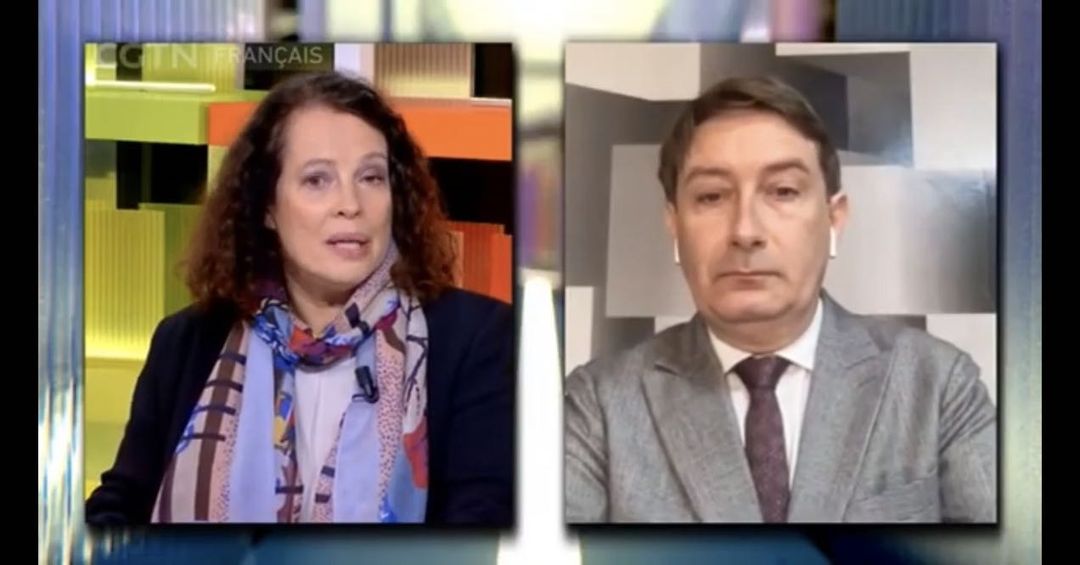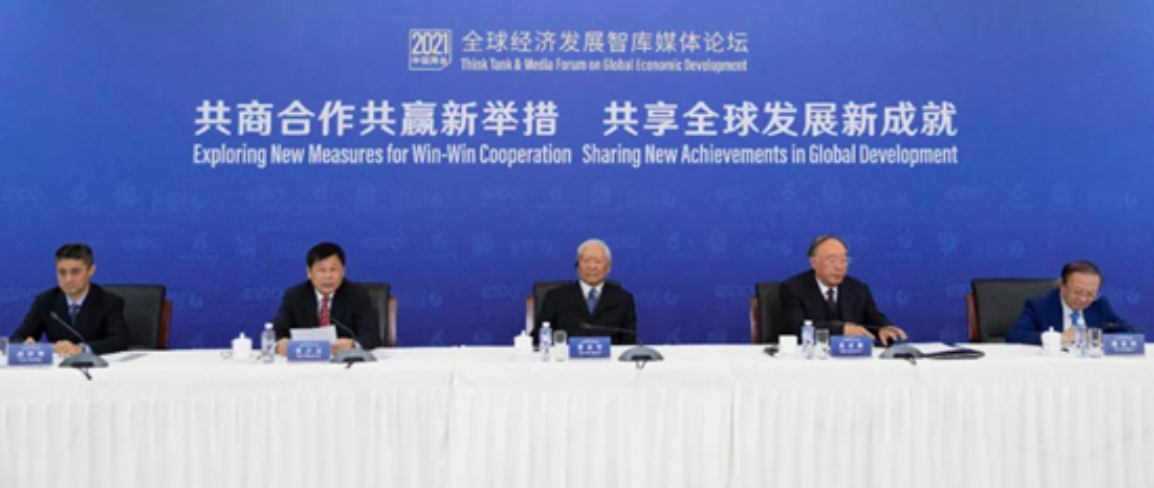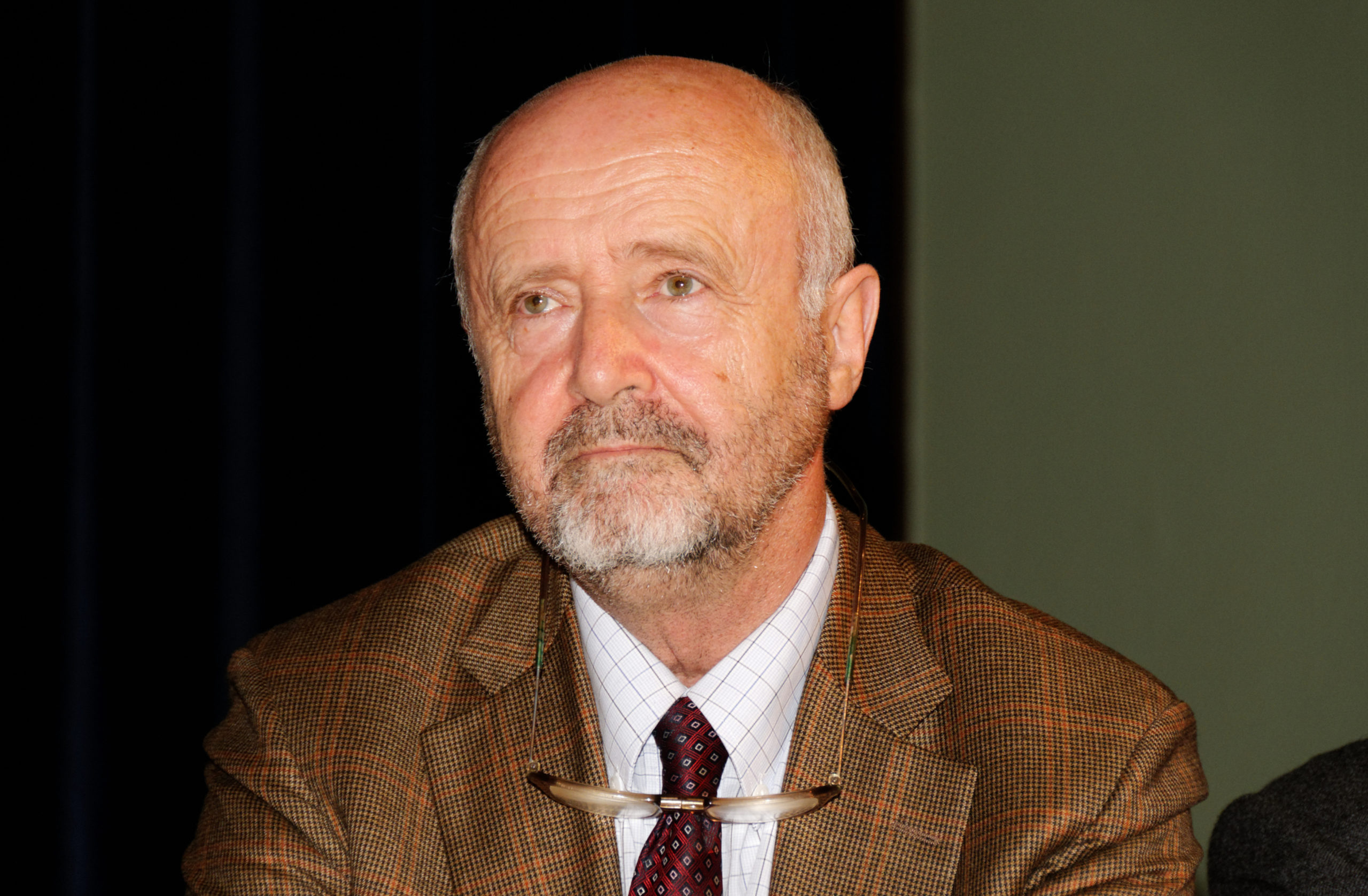Financing the African economy: Supporting the Modernization of African Economies
By Clarisse Hida & Joël Ruet
As the Summit on the financing of the African economy will be held on May 18, 2021 in Paris, at the invitation of Emmanuel Macron and with the African heads of state and government, solutions must go well beyond refinancing of sovereign debt, to integrate the dynamics of an African financial system undergoing a great transformation, and must include the banking sector, both at the level of the private sector and of commercial banks.
Africa has been resilient since the economic crisis of 2008 with controlled debt until the covid pandemic, and, for many countries, debt has been raised in connection with a transformation, an extension of the tax base, with margins remaining in this in terms of debt sustainability. But above all the continent, and in particular sub-Saharan Africa, has demonstrated a real boom in its economies, served by the growth of pan-African banks, which now desreve better support internationally.
But today Africa remains underbancarised, and a “classic” treatment of African economies by the tools of the banking system possibly supported by a multilateral public tool for the correct assessment of risks, including the issues of “rating”, looks promising.
Key Take-aways :
► The issue of financing the African growth should be approached through:
– Maintaining development assistance in the context of COVID-19 which, in itself, does not constitute a specific risk for Africa.
– The revival of public and private foreign investments in Africa, by improving the perception of African opportunities, including a fairer rating of private and sovereign financial assets.
– And finally, through support the access to capital markets for commercial banks since it is clear that many banking regimes are sound and should not be underestimated.
► In each of the avenues proposed, the international community must play an integrating or intermediary role that goes beyond the framework of development aid.
► This triple approach would make it possible to tap new types of financers, who would be able to better understand the specificities and strategies of African countries, particularly, but not only, with regard to debt and its refinancing.
The Bridge Tank at the BOAO Forum for Asia 2021: a partnership anchored in a shared vision for the future
The Bridge Tank at the annual “Chinese Davos” meeting
After a year of pandemic which led to its suspension in 2020, the BOAO Forum renewed its annual conference from April 18 to 21, 2021 in a context fluctuating between resumption of international trade and temptation to withdraw. As such, the “Chinese Davos” plays a decisive role in the international calendar by advocating an open multilateral dialogue, at a time when the Covid19 has lastingly disrupt the international balance and created a series of new challenges while exacerbating those which pre-existed to it.
Since 2018, the chairman of the Bridge Tank Joël RUET has participated to the BOAO Forum, of which the think tank is a partner. As every year, he spoke at a high-level conference alongside international leaders from the political and business worlds, such as Dmytro KULEBA, Ukrainian Minister of Foreign Affairs, Jens ESKELUND, vice-president at the Chamber of European trade in China, or LIU Hualong, president of China Poly Group, but also the director general of the WTO, Ngozi OKONJO-IWEALA, or the South Korean Minister of the Environment.
He was one of the three French speakers, embodying the circle of think tanks, while Jean-Pierre RAFFARIN and Henry GISCARD D’ESTAING, respectively represented the political and economic world. This high-level platform of dialogue, eagerly awaited in the context of a return to international discussions, aspires to build a global consensus and promote common and sustainable development. This meeting was an opportunity to discuss the measures takenby the BRI countries to keep the economic and trade volume roughly stable and normal during the COVID-19 pandemic when the global economy plunged, and cross-border trade and investment slowed down. The role of China-Europe Railway Express in stabilizing the global supply chain was also discussed, as well as the role played by e-commerce in renewing and developing international economic cooperation. In the context of an implementation of the New Silk Roads, but also of an Investment Agreement between the EU and China which is debating, the future of Sino-European relations also occupied the space of discussion.
For Joël Ruet, chairman of the Bridge Tank, “the investment of today makes the business of tomorrow”
In his speech, Joël Ruet stressed the need to optimize Eurasian trade, embodied by the rise of the China-EU Railway Express, by emphasizing the role of upstream investment. As such, it calls for a rebalancing of trade, in favor of exports of European technologies and equipment to China. On this point, the Bridge Tank discussed at length the subject of the EU’s competitive advantages to be brought to bear in its trade with China.
He also addressed the energy issue : the Belt and Road Initiative (BRI) could play an important role in connecting the two hydrogen champions Asia and Europe. The Bridge Tank has also developed several avenues of cooperation in terms of research that it would be strategic to develop between the two regions.
Joël RUET added that the EU did not intend to tackle the climate issue as one subject among others, but as an issue that conditions and prevails over everyone’s interests, and compared this approach to the Blinken line: dealing separately with technological rivalries and coordination for the climate. Joël Ruet said it remains to be seen whether this separation is audible by the Chinese side.
He also reflected on the place of Africa in the Belt and Road Initiative, suggesting that Africa wants and must find its place there. According to him, investments on the African continent, still too limited to infrastructure, would benefit from further enhancing contact between individuals by focusing on human capital and skills training.
Ukrainian Foreign Minister in favor of an ambitious European cooperation on hydrogen

The Ukrainian Foreign Ministry raised the many challenges brought to light by the pandemic. He argues that international trade will play a key role in the global economic recovery, provided cooperation is boosted. To achieve this, and like Ukraine, which is posed as a strategic logistics hub, the regions of the world must enhance their connectivity in order to foster multilateral interactions.
He advocates enhanced European cooperation in the sector of alternative energies such as hydrogen. He therefore calls for coordinated efforts to invest in hydrogen technologies, ensuring that Ukraine intends to play its role as a strategic partner. The Bridge Tank shares with interest the Minister’s enthusiasm for innovative cooperation around hydrogen, as evidenced by these numerous works on the subject.
For Jens Eskelund, Managing Director of Maersk and Vice-President at the European Chamber of Commerce in China, “the business world allows constructive international dialogue beyond politics”

Jens Eskelund spoke about the pre-Investment Agreement between the EU and China, whose ratification has been suspended due to political disputes. For him, this is the dangerous symptom of a phenomenon of politicization of world trade: the political circle meets the business world. However, this situation is untenable in the long term: both parties must be aware of the need to maintain an open dialogue. For him, trade remains the area where constructive and frank links can be maintained regardless of political differences. The business world therefore has a role to play in maintaining contact where diplomatic relations face an impasse.
According to him, and the Bridge Tank totally agrees with him, international cooperation is indeed crucial to meet future challenges such as the climate challenge: on this subject, the EU and China cannot afford to develop technologies in parallel without converging.
LIU Hualong and the importance of working towards a state of trust to rebuild international relations

In a context of tension in diplomatic exchanges, the CEO of Poly Group insisted on a return to a state of trust, a necessary prerequisite for any trade or international investment. According to him, sharing experience and building trust are essential to rebuilding a sustainable post-covid world and stabilizing the global supply chain.
Joël Ruet bounced back from this intervention, emphasizing that constructive relations must be rooted in a state of mutual understanding, fueled by international networks and cultural projects. In fact, for a rapprochement on investment to be made by companies, it is essential to get to know each other, through multicultural initiatives.
The Bridge Tank at the BOAO Forum : to go further
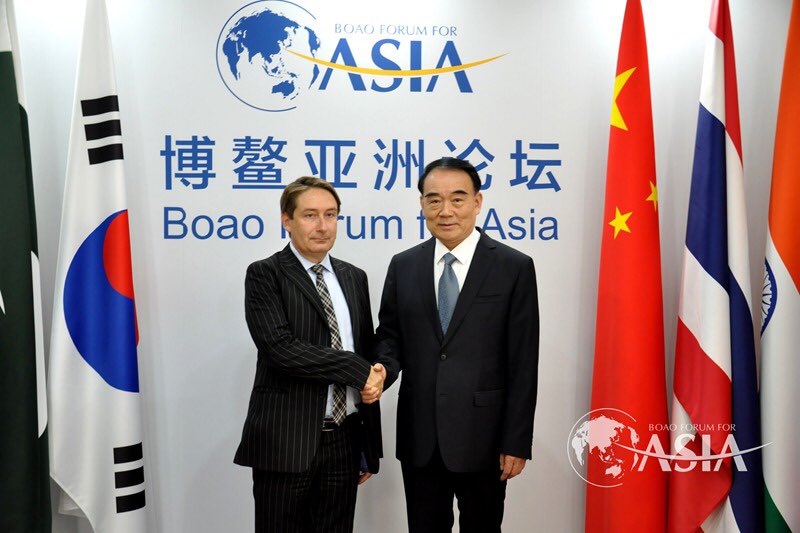
If the Bridge Tank has been a faithful partner of the BOAO Forum since 2018, it is because it works to offer a vision of the world converging with the vision shared at BOAO, in favor of openness and cooperation. The interviews suggested below, given by Joël Ruet to Chinese media, allow us to deepen the meaning of this shared vision.
During an interview with CGTN TV, Joël Ruet proposed avenues for reflection on environmental cooperation between China, the European Union and the United States. He also mentioned the need to strengthen coordination between the G20 and the BRI and addressed the issue of governance of these new Silk Roads to these journalists.
Coordination between Europe, India and COP26 is a great lever for climate engagement
Our Board Member Minister Prabhu, India’s G20 Sherpa, discussed sustainability issues with COP26 President and EU Commissioner Timmermans in charge of the green deal. EU-India-COP26 coordination is one of the great levers of ambitious and credible Climate commitments.
EU-China Comprehensive Agreement on Investment: Stakes for a constructive balance of power
By Philippe Coste, Pierre-Noël Giraud, Stéphane Gompertz, Henri de Grossouvre, Fatima Hadj, Brice Lalonde, François Loos, François Quentin, Joël Ruet, Raphaël Schoentgen, Alex Wang, avec Clarisse Comte et Claire Thomas.
After seven years of negotiations, the European Union and China reached an investment agreement on December 30, 2020. While Beijing sees in it the promotion of a “high degree of openness”, the EU aspires through this treaty to establish the long sought after “equality of market conditions”.
To carry out this project, a balance between the strategic interests of each side and common objectives on which to agree remains to be found… just as it remains to find avenues for concrete action.
Find the analysis note in French :2021-03-Issue-Brief-UE-CHINETélécharger
• This treaty provides for the intensification of economic and trade relations between the EU and China. It guarantees EU investors greater access to China and also helps to create more balanced conditions of competition.
• Areas of collaboration are proposed here, in various fileds : political (place of China in international organizations, global governance), legal (international standards, ESG), industrial (mobility, decarbonisation, role of SMEs), economic, environmental, scientific , technological (energy transition, carbon capture, hydrogen, nuclear, new energies), financial (coordinated introduction of carbon prices) and cultural.
• For the EU, it is above all a matter of asserting its strategic interests in a coordinated manner with the member countries during the ratification process.
The long-term issues of technological sovereignty, of competition between blocs, all possible causes of “stop and go” in bilateral relations must be seriously dealt with.
Despite the identified obstacles, maintaining an open but precise dialogue between the EU and China is essential. The European Union must continue its transformation and ensure respect for its increase in diplomatic power both within the EU and in its relationship with China: beyond state-to-state relations, it is up to the EU in as a community to negotiate the terms of a new bilateral relationship with China. It is in this way that it will confirm its status as a “balancing power”.
The Organization for the Development of the Senegal River Basin (OMVS) will be a candidate for the Nobel Peace Prize
On 12th March 2021, in Kayes, Mali, our Board Member Hamed Semega, announced the Senegal River basin organization (OMVS) will run for the Peace Nobel Prize. OMVS, an international organization under Guinea, Mali, Mauritania, Senegal, today celebrates its 49th anniversary. Heading towards 50, and ahead of the upcoming Word Water Forum, the 4 states realize the OMVS has been a factor of peace, stability and development in the region. Just as IPCC got the Prize on climate change mitigation, we wish the OMVS will get the prize for huge climate adaptation efforts it does on top of peace.
Signing of the investment agreement between the EU and China
Ambassador Sylvie Bermann and our chairman Joel Ruet exchanged notes on Chinese TV on the EU-China investment agreement; noting that it not only concludes 7 years of negotiations but also of seeing on both sides the emergence of a different vision of the world. While many issues remain to be finetuned, ambassador Bermann recalled the agreement answers queries made by the EU and follow a European approach on the economy
China “Two Sessions” : the Bridge Tank co-organizes the Think Tank & Media Forum on Global Economic Development
A Forum on Global Economic Development on the occasion of the Two Sessions in Beijing
Together with its Chinese partners, the China International Publishing Group and the China Institute for Innovation & Development Strategy, as well as the Prospective & Innovation Foundation, the Bridge Tank co-organized on March 8 a hybrid Forum on the sidelines of the Two Sessions.
On this occasion, Joël Ruet spoke alongside Wei Jianguo, former vice-minister of Commerce in China and vice-chairman of the China Center for International Economic Exchanges, Cai Jiming, deputy at the People’s National Assembly and director of the Central Committee of the China Association for Promoting Democracy, and Zhang Yuyan, member of the 13th National Committee of the Chinese People’s Political Consultative Conference and director of the Institute of World Economics and Politics.
Jean-Pierre Raffarin, former Prime Minister of France, opened this webinar alongside four Chinese vice-ministers and the deputy speaker of the House of Representative of Argentina. For almost three hours, representatives of more than ten countries, ranging from Russia to India, from Brazil to South Africa, explored new avenues of thoughts, in particular in favor of multilateral cooperation, global economic recovery supported by innovation and reform of global economic governance. The role of international think tanks in building platforms for dialogue was highlighted, and presented as an essential strength in building a community on a humanity scale.
Chinese media articles China Today, China.org, China Institute for Innovation and Development Strategy covered this event in particular.
Opening of the Forum by Jean-Pierre Raffarin: against the temptation of isolationism, an international cooperation based on innovation
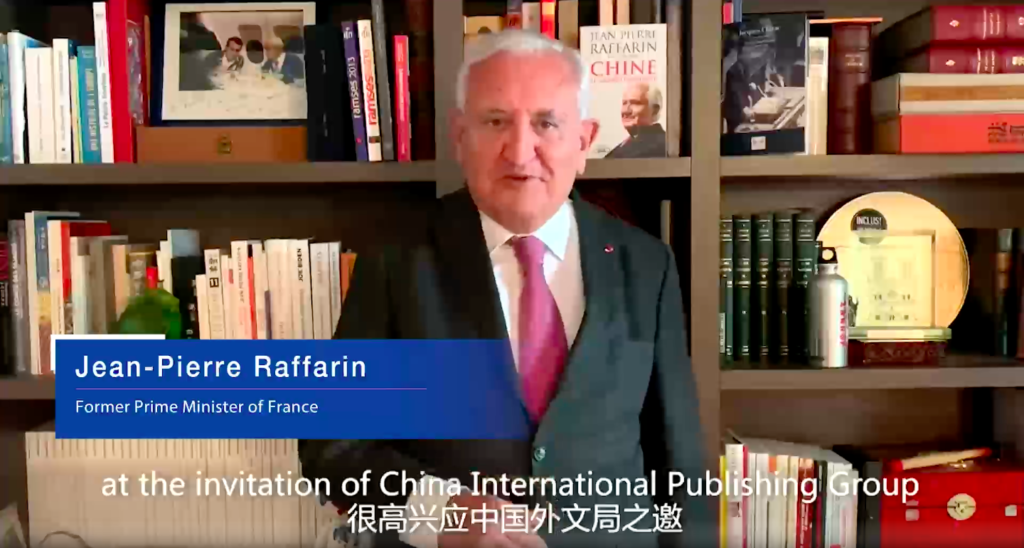
In his remarks, the former French Prime Minister said that sharing of experiences and mutual understanding were essential to achieve peaceful development, a common goal for all countries. As a global crisis exacerbates the need for a coordinated response to global challenges, he stressed the dangers of a temptation to unilateralism and protectionism. Emphasizing the role of innovation, he argued that each country should actively conduct international cooperation while safeguarding its own sovereignty. He mentioned in particular the fight against climate change, referring to the joint efforts of France and China, a strong signal in favor of a global consensus for green development.
From crisis to opportunity for renewal, according to Chinese speakers Wei Jianguo, Zhang Yuyan and Cai Jiming
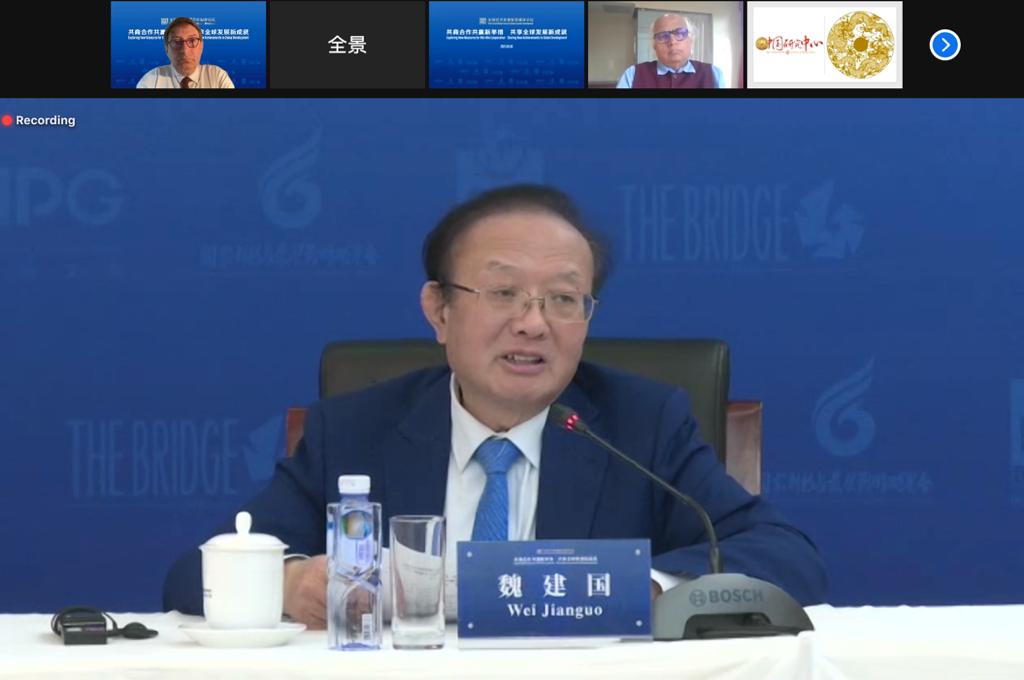
Former vice-minister of Commerce Wei Jianguo said China’s “dual circulation”, a pillar of the 14th Five-Year Plan launched at the same time, will bring new opportunities for global economic development. According to him, beyond the crisis it is going through, the world is entering a new era of globalization, where China must play a crucial role.
But experts have set it against a less optimistic scenario, warning of current systemic risks threatening the global economy, such as inflation, the symptoms of which – sharply rising commodity prices – are already visible. Inflation and climate change therefore emerged as two challenges of common interest to be tackled together.
Zhang Yuyan called for renewed international cooperation, which involves working together on the issue of global governance. Indeed, discussions remain to be conducted, and this responsibility falls to the great world powers, which must find the right balance between strategic autonomy and common interests.
Cai Jiming emphasized the importance of building a fair and sustainable world trading system, based on the notion of comparative interest in the international division of labor, firmly opposing isolationist tendencies that threaten the balance of world trade.
China’s commitment in Global Security and Sino-European Cooperation : Joël Ruet’s Intervention
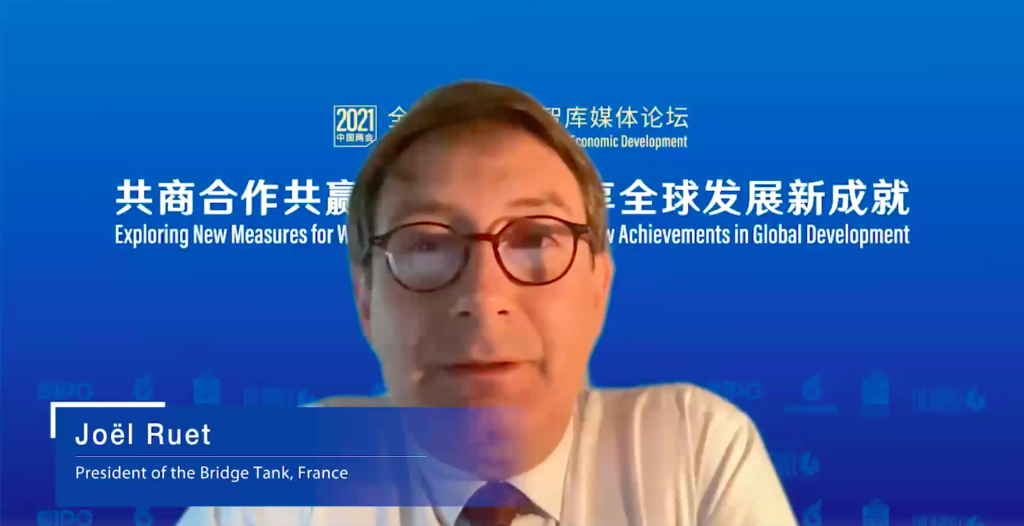
Joël Ruet, chairman of the Bridge Tank, said China must adopt more multilateral ways to clarify its position in the security issue and create a stable external environment. Speakers also agreed on the idea that China should play a role commensurate with its economic weight in global governance.
He referred to the pre-investment Agreement concluded between China and the EU, symbol of the opportunities that can emerge from a crisis, while warning of two priorities that should not be overlooked. Indeed, he targeted two areas where Sino-European cooperation is fundamental : the environment, where the ambitious words of the heads of state must be implemented through acts in the perspective of the COP26, and industrial cooperation, that the European and Chinese industries and businesses see as very promising.
The take of The Bridge Tank on the 2021 Two Sessions – “Dual circulation”, high-quality development, disappointing environmental objectives…
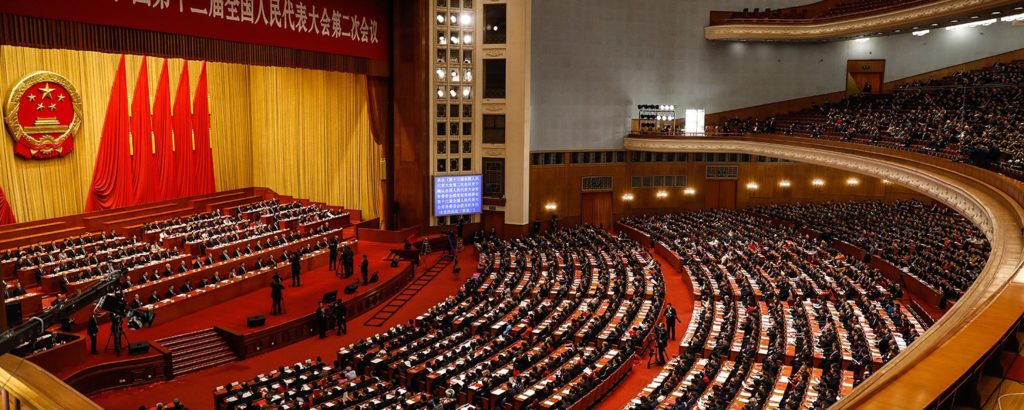
The Two Sessions designates the two annual plenary meetings of the National People’s Congress and the National Committee of the Chinese People’s Political Consultative Conference. After a year of pandemic which had postponed this meeting in May 2020, the Chinese leaders were keen this year to launch it on March 5, as if to embody the exemplary resilience of the country and the regained normality of the regime’s institutions. Plus, it is marked by the launch of the 14th Five-Year Plan 2021-2025 and the 100 years anniversary of the Chinese Communist Party.
Among the highlights of this event, Prime Minister Li Keqiang has set a growth target of 6% for 2021. This moderate figure shows that the priority will be less focused on an attractive GDP – the IMF is banking on an 8% recovery – than on stable growth in a context of uncertainty, and on three pillars: “reform, innovation, and high quality development”. Also, the budget allocated to research and development will increase by more than 7% per year over the next five years, to achieve breakthroughs in future technologies and allow China to gain strategic autonomy. Another priority of the regime is to upgrade the supply chain and to promote domestic consumption, especially in the automotive and household appliances sector.
In fact, both the Two Sessions and the 14th Five-Year Plan have as a common thread the development paradigm of “dual circulation”. This notion denotes a two-pronged development strategy that requires both internal and external market support to stimulate long-term consumption patterns. The domestic cycle is particularly emphasized while it is complemented by an international cycle, with foreign trade and investments abroad. This objective of betting on the huge Chinese domestic market is rooted in a desire to hedge against external shocks, in the context of rising diplomatic tensions and instability in the world economy.
Li Keqiang also stopped on the environmental issue: he called for the promotion of the greening of lifestyles and production. For example, one of the targets for 2021 is to achieve a rate of 70% for the use of clean energy for heating. The 14th Plan calls for China to reduce its energy consumption per unit of GDP by 13.5% and CO2 emissions by 18%. Yet the experts say that the objectives mentioned do not represent a real acceleration to achieve the carbon neutrality expected in 2060, for lack of concrete means. For example, the Double Assembly as well as the 14th Five-Year Plan introduced the idea of a “cap on CO2 emissions”, without actually setting one. While it is encouraging that a component dealing with climate change is for the first time adopted in a national-level plan, these initial environmental indications are therefore often perceived as ambiguous, even disappointing.
Minister Brice Lalonde and former UN deputy SG discusses ecological transition with the Bridge Tank
Brice Lalonde, who served as French Minister for the Environment, UN Under-Secretary-General for Climate, and Executive Coordinator at Rio+20, detailed the major issues at stake around the ecological transition around which powers must engage in a new cycle of technological cooperation.
Prospects for Sino-European cooperation
The former minister recalled that the electrification of our economies is key for the transition, requiring the deployment and improvement of techniques such as batteries, electrolysers, and more broadly raising the question of large-scale electricity production. Brice Lalonde believes that it is in this context that nuclear energy is most relevant and should be subject to technological exchange. He recalled, by way of example, the previous signing of a France-China agreement on the construction of a nuclear waste reprocessing plant.
The speaker also mentioned several times the prospect of future use of synthetic fuels, which consist in capturing and reusing the carbon dioxide initially emitted as energy. Brice Lalonde thus insisted on the distinction between present and future energy resources, illustrating his point with the example of water, which should become a strategic resource because of the technology of water electrolysis, allowing for the production of hydrogen.
Finally, the former minister addressed the research issues surrounding carbon fixation, in the form of artificial photosynthesis or through the sequestration of carbon dioxide (CO2), on which China and the EU must also work together.
Global governance and the future of international trade
On the other hand, and apart from Sino-European relations alone, Brice Lalonde more broadly presented the lack of international cooperation on ecological issues as the main shortcoming preventing the deployment of the ecological transition on a large scale. In his opinion, a paradigm shift is necessary consisting in the establishment of a minimum of global governance on these subjects, in contrast to the current configuration where sovereign climate programmes are simply added together, without any supranational dimension. He believes that we lack major international cooperation agreements, concerning gas for example, where the gas industry should have coordinated to finance the transition of coal-based economies to gas, which emits much less CO2. It therefore seems crucial to him to revitalise multilateralism, in order to carry out projects such as the establishment of a common carbon market on an international scale.
Finally, on the subject of international trade, the former Environment Minister was able to oppose a shared opinion that would like to present it as an outdated practice in a world seeking to achieve carbon neutrality. On the contrary, Brice Lalonde stated that trade can be ecological. “We absolutely need trade. Trade can be a very powerful ally for the environment,” he said. To do so, trade rules should no longer focus solely on finished products, but also on production standards (i.e. regulating production-related greenhouse gas emissions). From this point of view, the World Trade Organisation (WTO) still has its place in the world of tomorrow. The WTO has already accepted the primacy of environmental law in prior cases, when this law is enshrined in international agreements. In the future, states could thus theoretically take advantage of international ecological agreements imposing production standards in order to block imports from countries that violate them.
Lalonde was one of the keynote speakers of the Bridge Tank’s forum on the post-COVID-19 EU-China cooperation. He took part in a panel entitled « Green development or ecological civilisation? », which was moderated by Wen Cui-Pottier, former journalist of the Shangai Media Group. This forum took place in the Brongniart Palace in Paris on the 15th of October 2020.The other speakers of this session were Nicolas Imbert, Executive Director of Green Cross France & Territoires and two members of the Bridge Tank’s board : Guillaume Henry, President of the Association of the Ecological Analysis of Law, and Zhao Wei, researcher at Sun Yatsen’s University.

